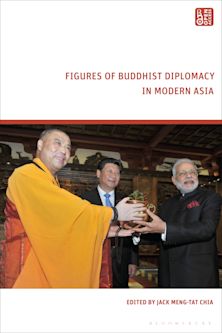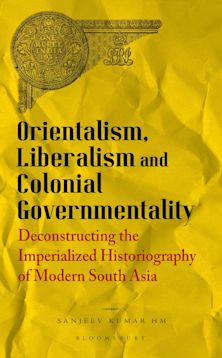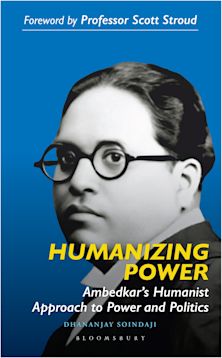- Home
- ACADEMIC
- Politics & International Relations
- Asian Politics
- The New Geopolitics of the South Caucasus
The New Geopolitics of the South Caucasus
Prospects for Regional Cooperation and Conflict Resolution
Shireen T. Hunter (Anthology Editor) , Bulent Aras (Contributor) , Richard Giragosian (Contributor) , Mohammad Homayounvash (Contributor) , Shireen T. Hunter (Contributor) , Richard D. Kauzlarich (Contributor) , Sergey Markedonov (Contributor) , Eldar Mamedov (Contributor) , Mohaiddin Mesbahi (Contributor) , Nona Mikhelidze (Contributor) , Ghia Nodia (Contributor)
The New Geopolitics of the South Caucasus
Prospects for Regional Cooperation and Conflict Resolution
Shireen T. Hunter (Anthology Editor) , Bulent Aras (Contributor) , Richard Giragosian (Contributor) , Mohammad Homayounvash (Contributor) , Shireen T. Hunter (Contributor) , Richard D. Kauzlarich (Contributor) , Sergey Markedonov (Contributor) , Eldar Mamedov (Contributor) , Mohaiddin Mesbahi (Contributor) , Nona Mikhelidze (Contributor) , Ghia Nodia (Contributor)
You must sign in to add this item to your wishlist. Please sign in or create an account
Description
This collection surveys the three South Caucasian states’ economic, social and political evolution since their independence in 1991. It assesses their successes and failures in these areas, including their attempts to build new national identities and value systems to replace Soviet-era structures. It explains the interplay of domestic and international factors that have affected their performance and influenced the balance of their successes and shortcomings. It focuses on the policies pursued by key regional and international actors towards the region and assesses the effects of regional and international rivalries on these states’ development, as well as on the prospects for regional cooperation and conflict resolution. Finally, it analyzes a number regional and international developments which could affect the future trajectory of these states’ evolution.
Table of Contents
Part I: Country Studies
Chapter 1: Twenty-Five Years On: Armenia’s Difficult Period of State-Building, Richard Giragosian
Chapter 2: Azerbaijan Twenty-Five Years after Independence: Accomplishments and Shortcomings, Eldar Mamedov
Chapter 3: Georgia’s pro-Western Policies: An Obsession or a pragmatic Choice, Ghia Nodia
Part II: Policies of International and Regional Actors
Chapter 4: US Policy towards the South Caucasus: Reform, Prosperity, Democracy, Richard Kauzlarich
Chapter 5: Russian Policy towards the South Caucasus: Security, Unity, and Diversity, Sergey Markedonov
Chapter 6: The South Caucasus in the European Union’s Perspective: Not a Single Region, Nona Mikhelidze
Chapter 7: Turkey’s Policy towards the South Caucasus: Expectations, Failures and Achievements, Bulent Aras
Chapter 8: Iran and the Changing Geopolitics of the South Caucasus, Mohaiddin Mesbahi and Mohammad Homayounvash
Chapter 9: Middle East Actors and Politics: Impact on the South Caucasus, Shireen T. Hunter
Conclusion, Shireen T. Hunter
Product details
| Published | Sep 22 2017 |
|---|---|
| Format | Ebook (Epub & Mobi) |
| Edition | 1st |
| Extent | 304 |
| ISBN | 9781498564977 |
| Imprint | Lexington Books |
| Illustrations | 1 Table |
| Series | Contemporary Central Asia: Societies, Politics, and Cultures |
| Publisher | Bloomsbury Publishing |
About the contributors
Reviews
-
Shireen T. Hunter has brought together a truly international team of experts to examine the complex geopolitics of the South Caucasus. The breadth and depth of analysis on key questions—such as state-building, democracy, and US–Russian rivalry—present the reader with a rich and textured account of the region. This volume is a tour de force on the interplay of global and regional dynamics which have made the geopolitics of the South Caucasus a continuing source of challenges and opportunities.
Shahram Akbarzadeh, Professor of Middle East and Central Asian Politics, Deakin University
-
Shireen T. Hunter, herself an expert in Caucasian and Central Asian affairs, has gathered an exceptional team of specialists on the local histories, recent experiences, and geopolitics affecting the three South Caucasian republics—Armenia, Azerbaijan, and Georgia. Geography may be destiny, but surviving and thriving in an area contested for centuries by Iran, Russia, and Turkey requires both diplomatic and political skills as well as good luck. In essays written with deep local knowledge and exceptional clarity, leading specialists guide the reader through the intricacies and complexities of the region. If you want to understand the past, present, and the future of the South Caucasian peoples, this is the book with which to begin.
Ronald Grigor Suny, William H. Sewell Jr. Distinguished University Professor of History and Political Science, University of Michigan
-
This study puts today's volatile South Caucasus in its proper historical and geopolitical context. Readers new to the subject will become conversant with the main issues; old hands will find much to ponder and discuss. Shireen T. Hunter’s own unique perspective is especially valuable.
John Evans, former US ambassador to Armenia



































